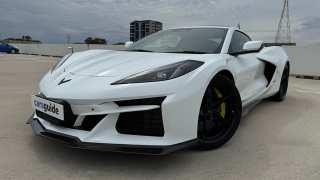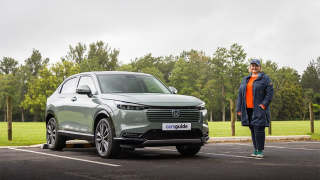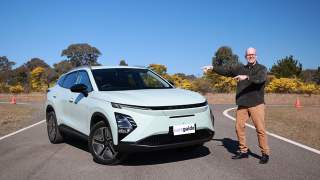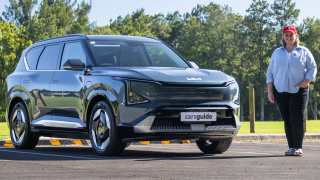
BMW to double its electric car driving range by 2030

As a sparky new version of motoring’s age-old power wars heats up, BMW has promised it will double the energy density – and thus the driving range – of its electric vehicle (EV) batteries by 2030.
Speaking to CarsGuide in Los Angeles, BMW connected e-mobility boss Jan Freimann hinted that the brand might achieve this impressive feat using a technology he describes as “something completely new”, rather than through the solid-state batteries many EV makers are pointing to as the future.
“We will double the energy density of batteries by 2030, we know this is achievable, we have already proven under lab conditions (that we can make) way higher energy density than we have out there in the market, so we are on the way,” he said.
The exact technology that BMW is studying is still unclear, but it is understood to be examining battery cell chemistry.
Other car companies, including the world’s biggest brand Toyota, are claiming that solid-state batteries will be the gamechanger for EVs.
Toyota will have vehicles using these batteries – which use a solid electrolyte instead of the liquid one found in current lithium-ion batteries, allowing them to achieve better energy density – running around Tokyo during the 2020 Olympics. It is also talking about having them in production vehicles by 2025, if not sooner.
Mr Freimann says BMW is also working on the technology, but he doesn’t believe anyone will get it to market in the next decade.
“This is a new field, and we are on it, at this stage it works in the lab, but if you scale it up maybe it doesn’t work anymore,” he said. “If you are asking me when will solid state batteries come into the game, it could be in the 2030s.
“In motor vehicle applications they have certain requirements in terms of vibration, harshness and so on, it has to be robust, it has to be safe, it has to be stackable, there are so many factors, but if we reach the stage where solid state batteries can be scaled up, we will be ready.”










Comments